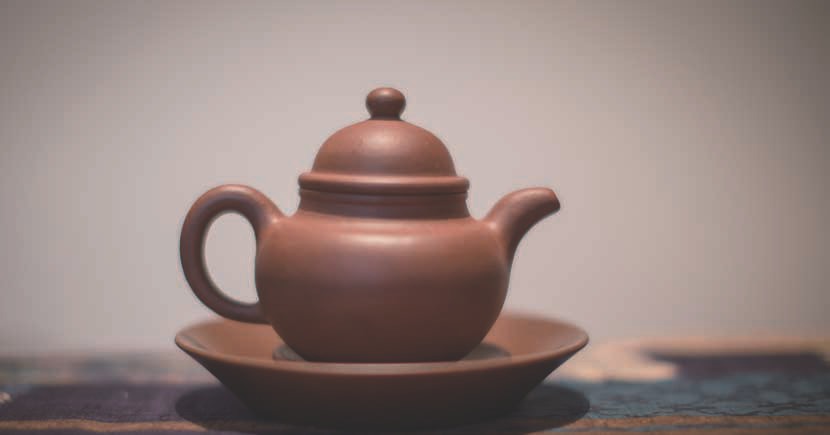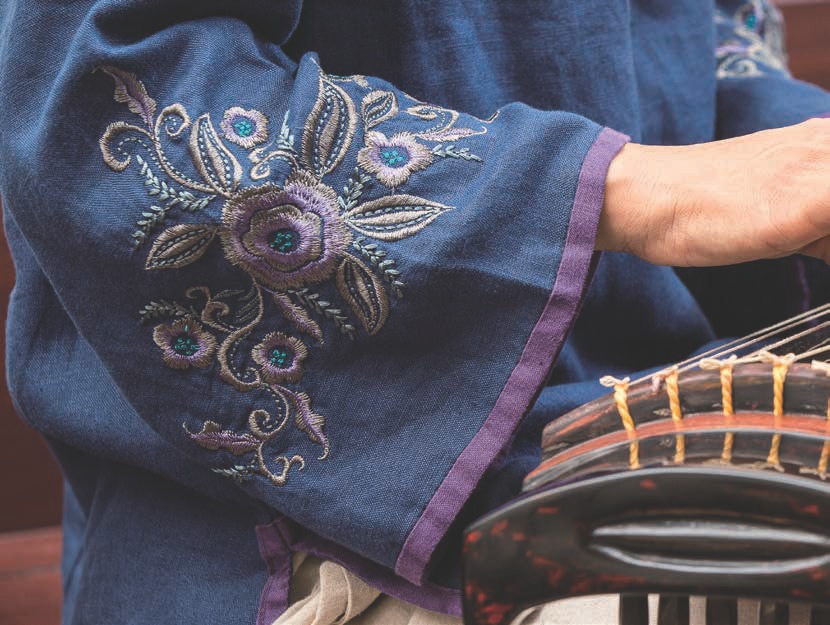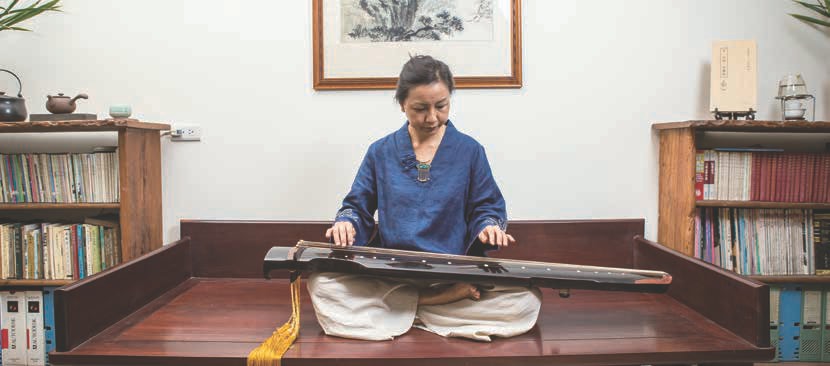
 |
|

All things are frequency and vibration, and therefore sound. From its very beginning, Tea is sound: from the wind, rain and sun to the falling of the seed when it lands on the ground to the sound of the sprouts that make it penetrating up through soil to the dancing of the leaves that fall back to the ground once they have grown up. To infuse tea and take it into us also happens with sound: of water boiling and pouring, the sound of the coals or fire crackling or even electricity through a heater; and then into the steeping of the leaves, with the lid tinkling against the pot, the decanting of the liquor into cups; and let us not forget the slurping and sipping! Every bit of tea has sound, so it's obvious that within us tea also responds to sound and music. Sound is special; so is Tea. Tone is consciousness; so is Tea.
Try experimenting with music while sitting with Tea; notice how a deeper penetration can happen, thicker or clearer - it can all vanish anyway - it all works somehow. The style of music chosen can affect the tea ceremony, and can relax or stimulate, completely changing the overall experience of a tea session.

While contemplating this article, I experimented while drinking twelve rounds of gongfu tea, brewing oolong over ninety minutes or so with four types of music, conversation and silence. Each had an effect. I noticed how I felt and how Tea felt listening to classical ballet music, Swampy Tony Joe White, Oscar Peterson with Anita O'Day jazz and Arvo Pärt choral music. The mood was different for each, to be sure, but how the tea felt in my mind and body also changed. I felt the taste deepen with some tracks - the way the tea moved in my body. There was a depth to the thick energy with other kinds of music, and the awareness of my intellect shifted, too.
I confess I was listening to LPs through a tube amp, so the sound quality was high, but that's just like using nice kettles, teaware and water, as we are asked to experiment with in each issue of Global Tea Hut. We have been inspired to contemplate these changes, and through our growing gongfu, we learn to respect the tea and the session.
Traditionally, playing music during tea enhanced the experience for guests. The ancients used chants, flute or the Guqin. I have also found that electric guitars, gongs and percussion work in a similar way with Tea, and help people slide into a meditative state.
Personally, I can also say that before playing a live show myself, I share tea with the members of the six-piece electric guitar orchestra with whom I play, and every one of them has commented on how the tea helps them enjoy playing that much more, not to mention putting them in a clear mindset. This stems from phi and pi, and the golden ratio of all Nature, in which Tea and us are one, so the equation, the notes and the sound frequency all align with the harmony within Nature, Tea and us. We return to that truth. Therefore, tea becomes and lends a hand in helping us relate back to what is balanced and harmonized in Nature, and in our hearts when our awareness is at its best. Tea creates the space for us to rest in the connection to Nature already in us. The sound of the source - be it the ocean, whalesong, wind, water or mountain forest. Our music of choice helps tea deliver a deeper experience. We travel further into the tea. Experiments can be done with precise tonal and vibrational frequency sets aligned with specific timing to understand what this is and how it functions, but that is a deeper experiment for another time. We are simple tea lovers.
For this month, let's all experiment with sound and gongfu tea. Let's try drinking a familiar tea - one that we know by name, and already have a lasting friendship with. Maybe you can make a playlist, or switch LPs, as I have. Choose some music with very different frequencies and let the tracks change over the course of a single session. You may even want to take notes. Jot down the differences in the tea, and in your own experience as the music shifts. If you have chosen very different music, you should also notice a drastic shift in the quality of the tea, and of your experience of it. Does Tea listen to the music, too? Can you feel that? And if so, how does She feel about each track?
If you conduct this experiment with friends, you can then compare notes afterwards and see how they felt. You may find a surprising concordance in your experience of the tea session. It will be rewarding to have a conversation about how different kinds of music impacted your experience. You may also want to try a steeping in silence just to see how that differs as well. As usual, try using a tea you and your guests are familiar with, so you will notice changes more easily. If you do not have someone with whom you can do this experiment, you can always go online to our discussion board on the website and share your findings with the whole community. We would love to hear from you!



